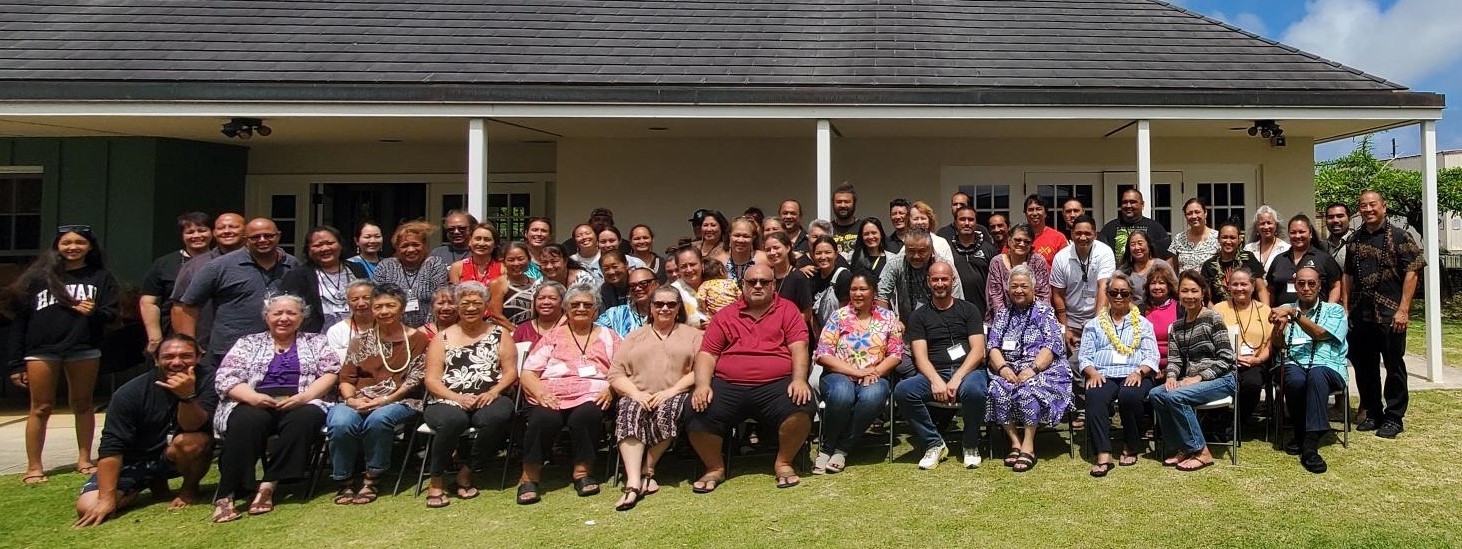
Ke Kuahaua Mauli Ola
A Declaration of Practice
June 20, 2024
(Līhu‘e, Kaua‘i). More than 70 practitioners and advocates of Native Hawaiian healing traditions gathered on Kaua‘i recently, committed to maintain the integrity of Hawaiian healing knowledge.
The chairs of five elder councils of Hawaiian healing practitioners signed Ke Kuahaua Mauli Ola, a Declaration of Practice to preserve, protect and perpetuate the cultural integrity and ancestral traditions passed down through generations of healers.
The declaration is a response to the growing appropriation of Hawaiian healing knowledge and practices by usurpers who don’t genuinely understand the protocols, the genealogy, the community recognition, the continued lineage of healers, and most importantly, that healing is a spiritual practice.
“We do what we were taught,” says kumu Ikaika Dombrigues, chair of the kupuna council that is affiliated with Hui Mālama Ola Nā ‘Ōiwi on Hawai‘i Island. “’Keep it pono and pure,’ they said.”
Elders such as Loretta Hussey and Babette Galang, who learned from the master practitioners of the 1980s provided history and context.
Aunty Loretta Hussey gets passionate, “It was the dramatic health statistics that propelled us, the visionaries of the era, to take action. We had to heal from the inside, forgive, clean it up, and move forward.”
The topics of concern over the two-day gathering included commercialization, governmental regulation, burn-out, fly-by-night practitioners, intellectual property, integrated health care, compensation and reciprocity, and more.
The concerns of today echo the discussions of the past. Discussions that led to the Kahuna Statement cited in Ke Kuahaua Mauli Ola, that emphasized the spirituality of healing, and invited the State to refrain from trying to regulate the practices.
However, contemporary policies recognize Hawaiian healing practices or practitioners in federal and state laws. Kupuna Councils, a traditional model, were established to provide an avenue for practitioners to continue their training and practice without fear of prosecution. The participating kupuna councils are all recognized by Papa Ola Lōkahi, as provided by HRS 453-2(c). Each council represents its community, is self-defining and self-governing.
“Kaua‘i is an excellent example of perpetuation of practice,” asserted Aunty Loretta Hussey, chair of Papa Ola Lōkahi board committee on traditional healing, referring to the cohorts of students being trained by Sean Puahi Chun of Hō‘ola Lāhui Hawai‘i in a variety of healing and cultural practices. “We’ve lost so many masters. We need to hold on to what we’ve got, and pass the knowledge on.”
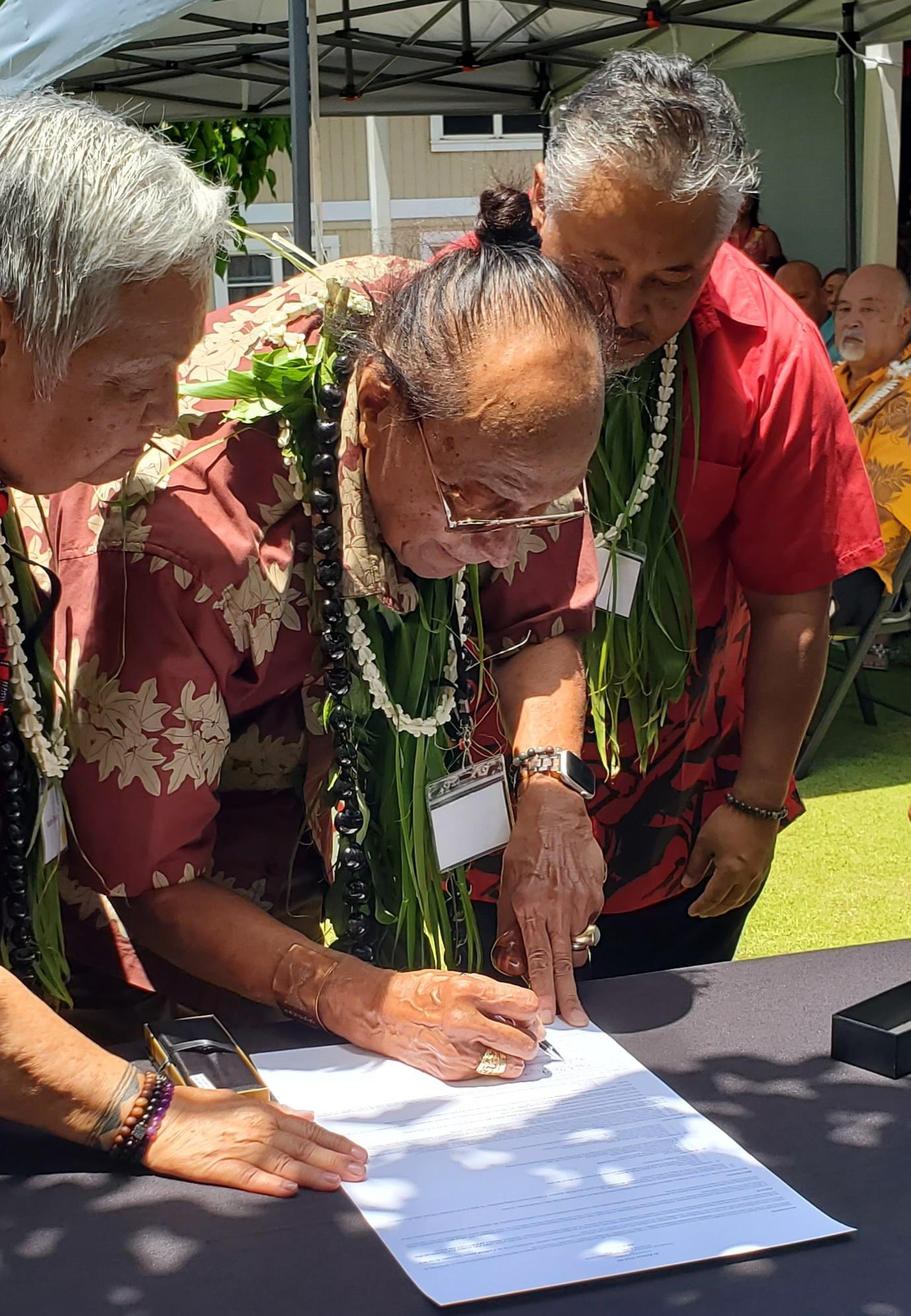
Kamaki A. Kanahele , chair of the Kupuna Council at Wai’anae Coast Comprehensive Health Center, signs Ke Kuahaua Mauli Ola
Other promising approaches were shared by practitioners from Waimānalo Health Center, Kōkua Kalihi Valley and other neighbor island communities.
The robust conversations also focused on solutions to the many concerns: taking personal responsibility for one’s well-being, developing a network for cross-referrals and cross-disciplinary learning, taking on haumana, students, and apprentices, being role models for the next generation, and asking Papa Ola Lōkahi to continue monitoring policy activities at all levels.
“Whatever is your practice, practice!” reflected Kaua‘i student Erin Cobb-Adams. “It is an act of decolonization. I am learning because I know we are creating a better place for my children.”
DOWNLOAD: Ke Kuahaua Mauli Ola – 2024-0620 (reduced)
Program Staff
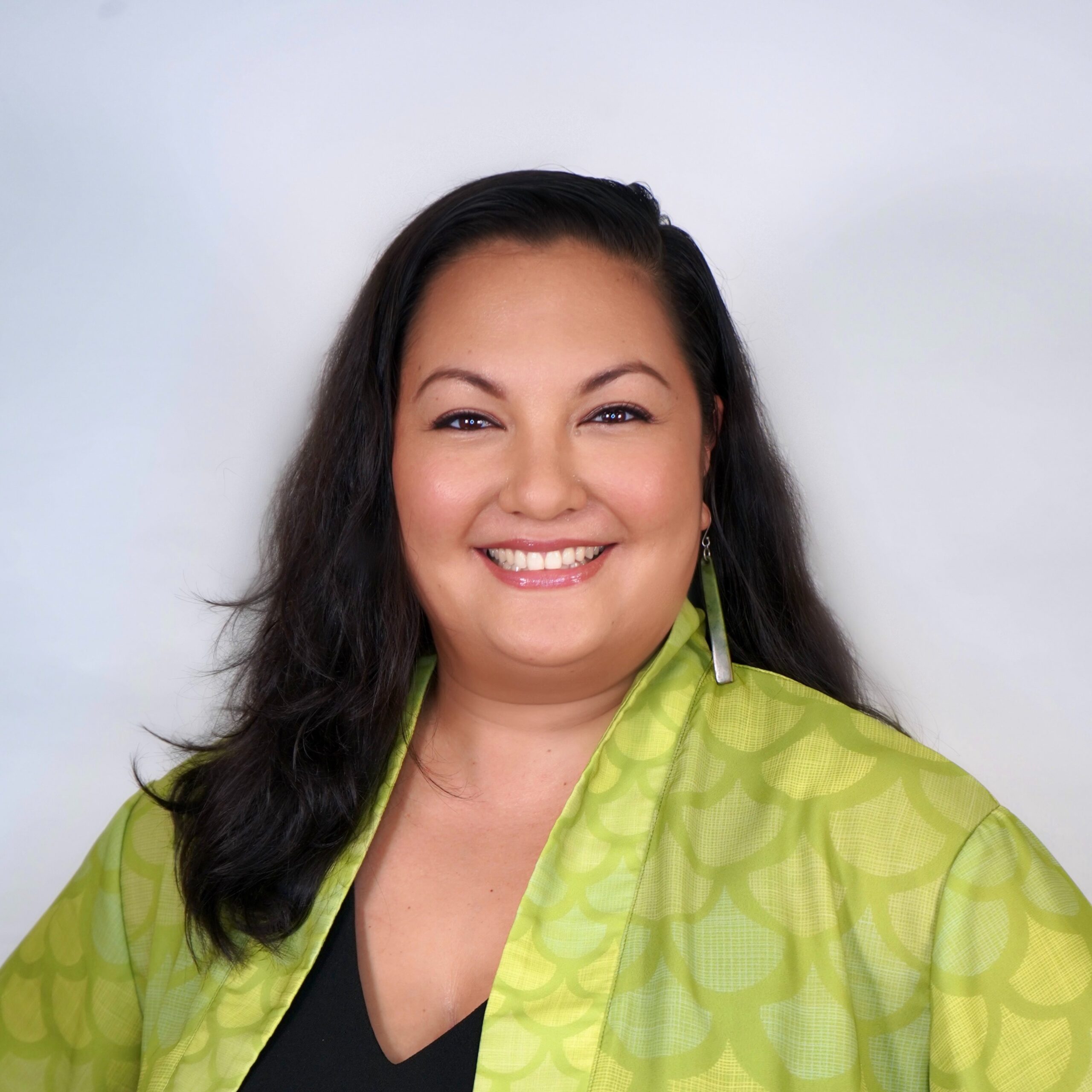
Nāpua Casson-Fisher
she/her/ʻo ia
Director, Community Initiatives
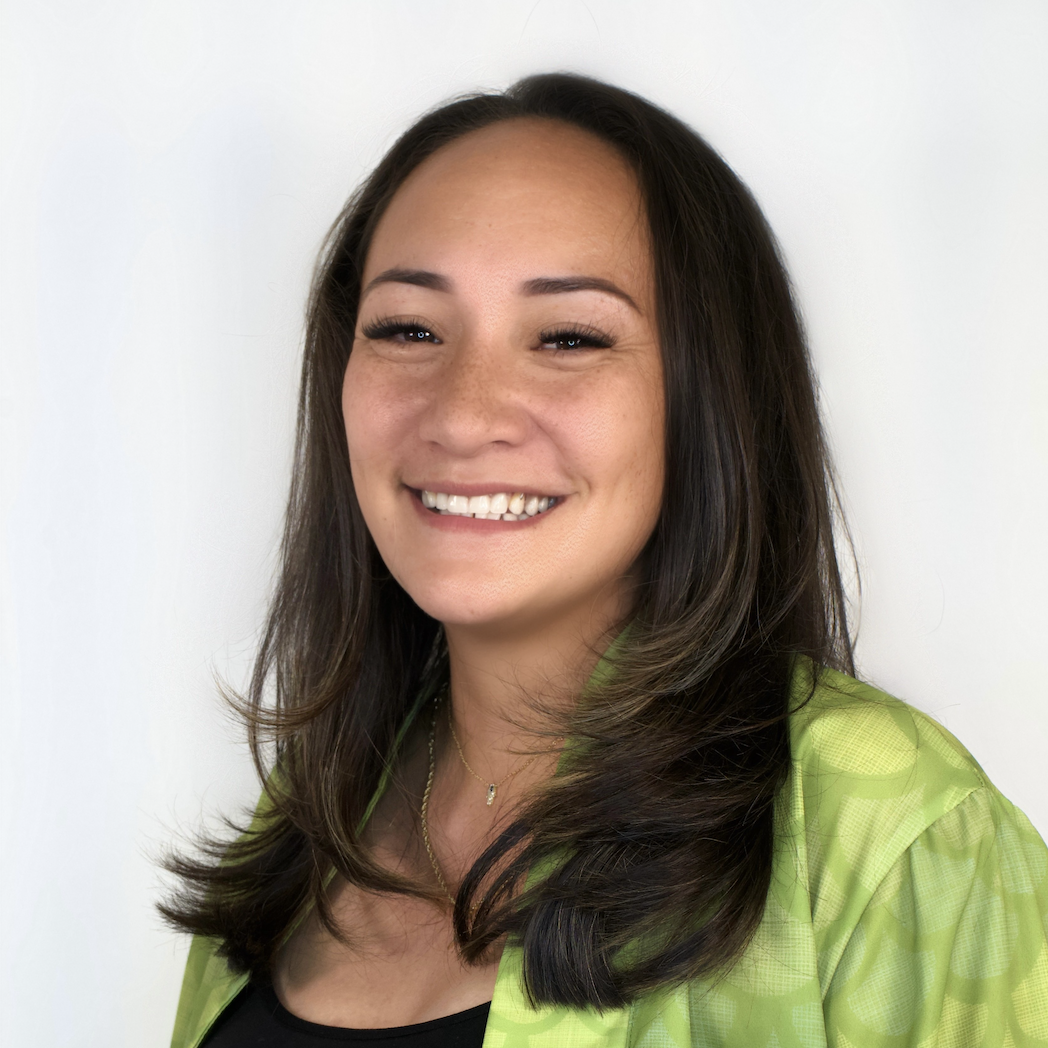
Camille McComas
Program Specialist - Substance Use & Mental Health
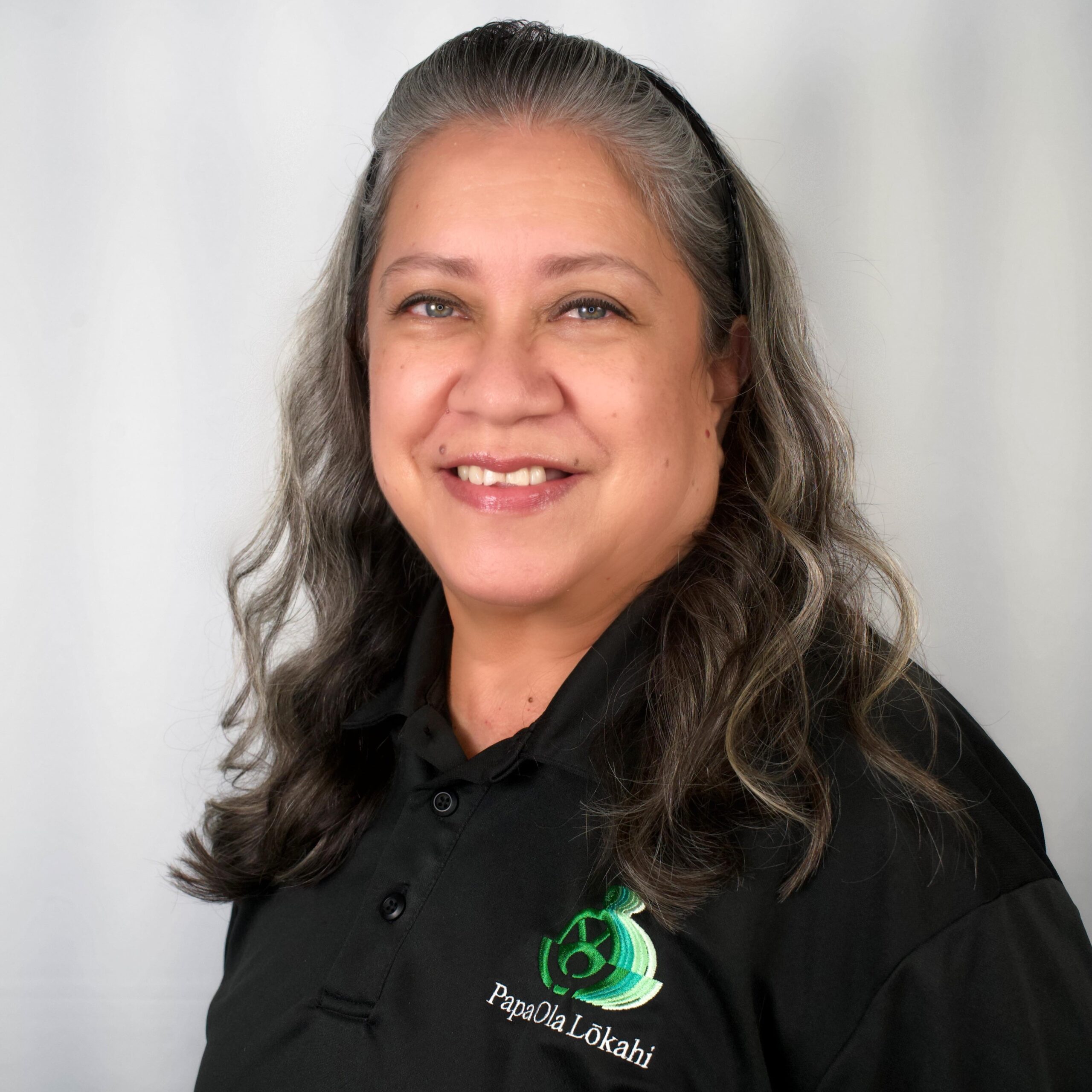
Cathy Ferreira
she/her/ʻo ia
Administrative Support
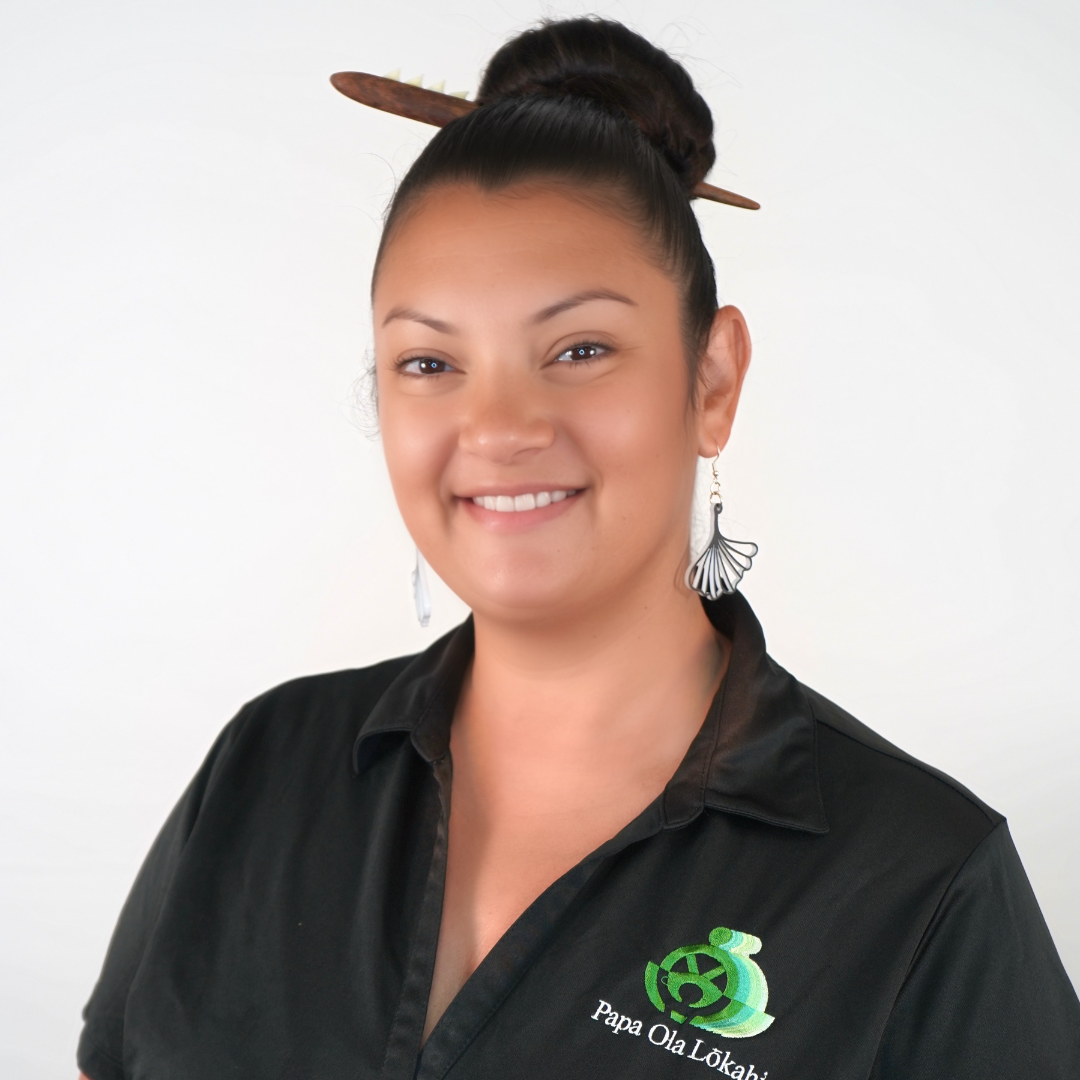
Lilinoe Kauahikaua
she/her/ʻo ia
Education & Training Manager
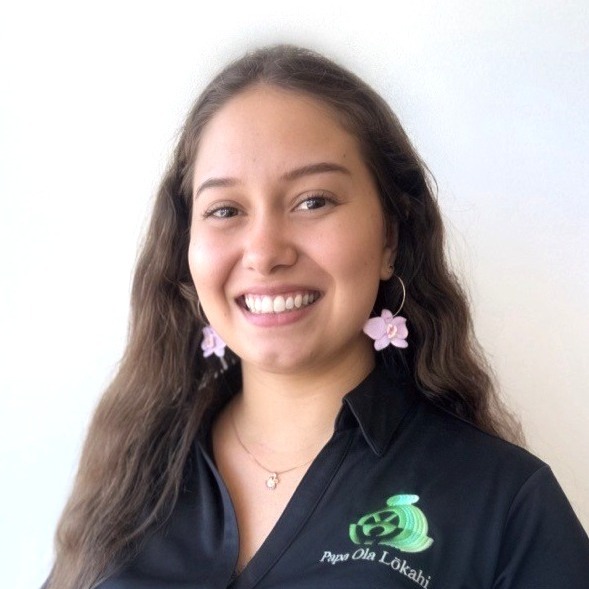
Kawehi Moderow
Population Health Specialist - Chronic Conditions, Maternal & Child Health, Sexual & Reproductive Health
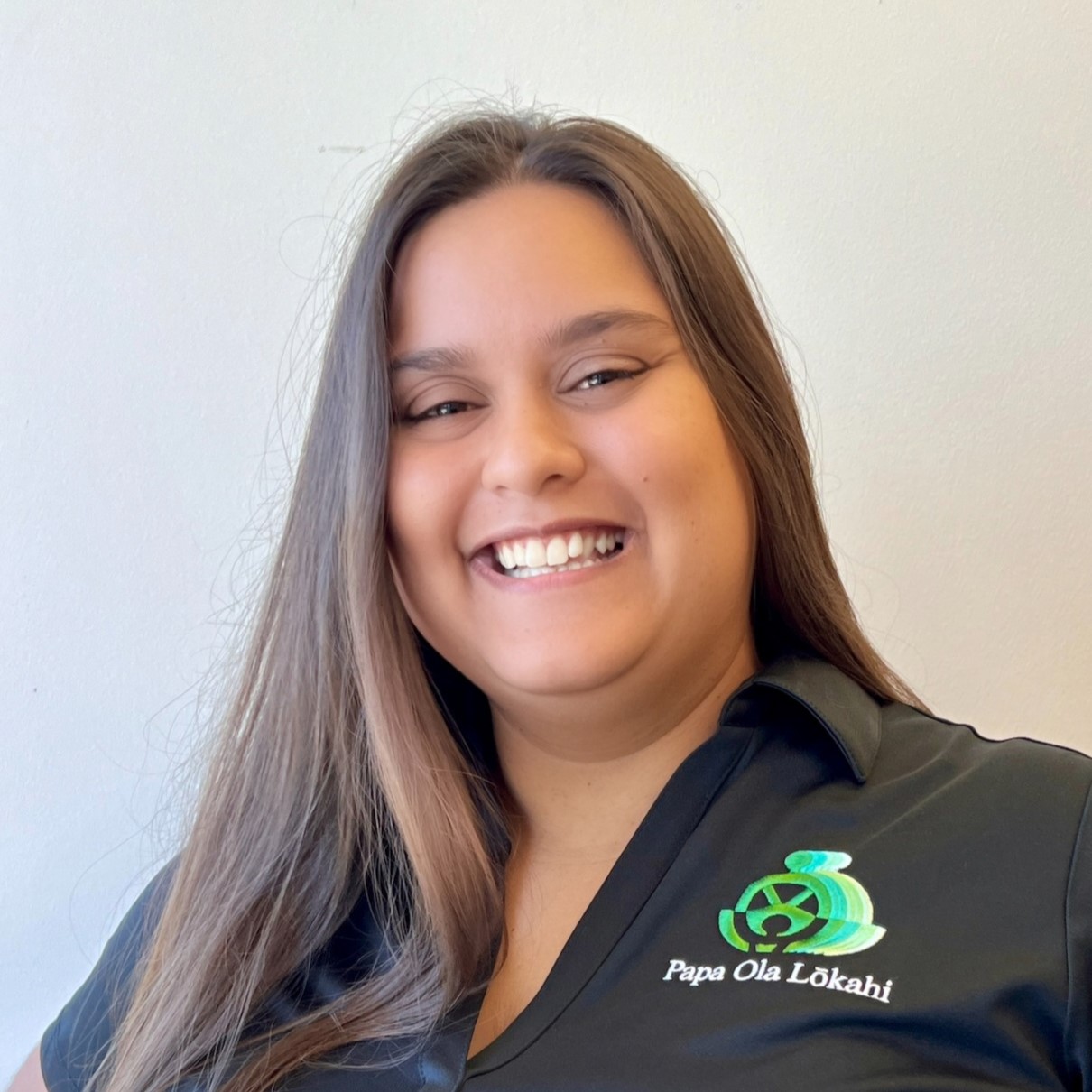
Kuaiwi Laka Kahiwakapu Pili I Haupapanui Makua
Population Health Specialist - Environmental Health, Nutrition & Oral Health
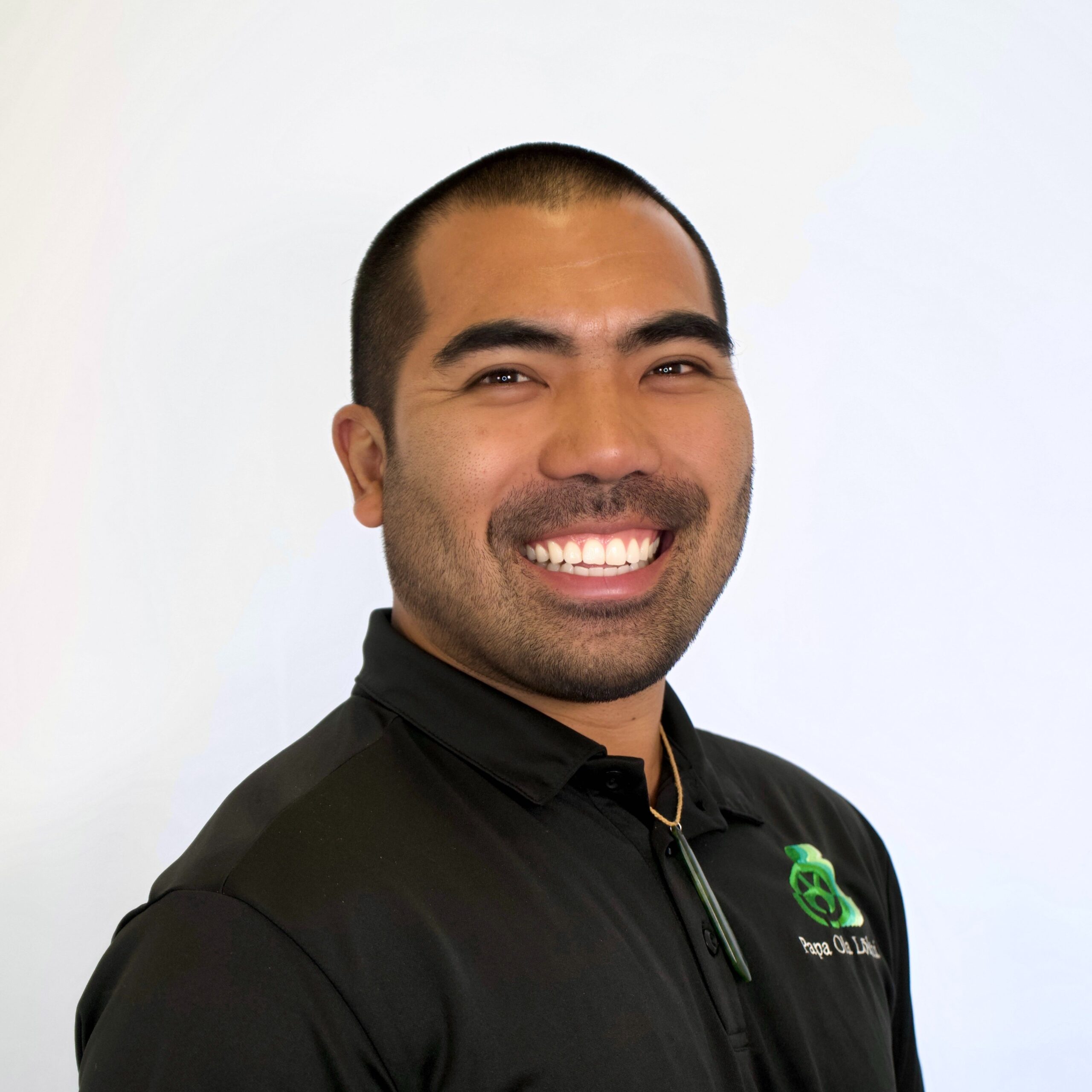
Ikaika Regidor
ʻoia/they/he
Program Manager, Community Initiatives
